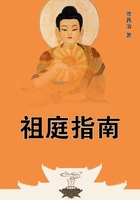So soon as the possession of property becomes the basis of popular esteem, therefore, it becomes also a requisite to the complacency which we call self-respect. In any community where goods are held in severalty it is necessary, in order to his own peace of mind, that an individual should possess as large a portion of goods as others with whom he is accustomed to class himself; and it is extremely gratifying to possess something more than others. But as fast as a person makes new acquisitions, and becomes accustomed to the resulting new standard of wealth, the new standard forthwith ceases to afford appreciably greater satisfaction than the earlier standard did. The tendency in any case is constantly to make the present pecuniary standard the point of departure for a fresh increase of wealth; and this in turn gives rise to a new standard of sufficiency and a new pecuniary classification of one's self as compared with one's neighbours. So far as concerns the present question, the end sought by accumulation is to rank high in comparison with the rest of the community in point of pecuniary strength. So long as the comparison is distinctly unfavourable to himself, the normal, average individual will live in chronic dissatisfaction with his present lot; and when he has reached what may be called the normal pecuniary standard of the community, or of his class in the community, this chronic dissatisfaction will give place to a restless straining to place a wider and ever-widening pecuniary interval between himself and this average standard. The invidious comparison can never become so favourable to the individual making it that he would not gladly rate himself still higher relatively to his competitors in the struggle for pecuniary reputability.
In the nature of the case, the desire for wealth can scarcely be satiated in any individual instance, and evidently a satiation of the average or general desire for wealth is out of the question. However widely, or equally, or "fairly", it may be distributed, no general increase of the community's wealth can make any approach to satiating this need, the ground of which approach to satiating this need, the ground of which is the desire of every one to excel every one else in the accumulation of goods. If, as is sometimes assumed, the incentive to accumulation were the want of subsistence or of physical comfort, then the aggregate economic wants of a community might conceivably be satisfied at some point in the advance of industrial efficiency; but since the struggle is substantially a race for reputability on the basis of an invidious comparison, no approach to a definitive attainment is possible.
What has just been said must not be taken to mean that there are no other incentives to acquisition and accumulation than this desire to excel in pecuniary standing and so gain the esteem and envy of one's fellow-men. The desire for added comfort and security from want is present as a motive at every stage of the process of accumulation in a modern industrial community; although the standard of sufficiency in these respects is in turn greatly affected by the habit of pecuniary emulation. To a great extent this emulation shapes the methods and selects the objects of expenditure for personal comfort and decent livelihood.
Besides this, the power conferred by wealth also affords a motive to accumulation. That propensity for purposeful activity and that repugnance to all futility of effort which belong to man by virtue of his character as an agent do not desert him when he emerges from the naive communal culture where the dominant note of life is the unanalysed and undifferentiated solidarity of the individual with the group with which his life is bound up. When he enters upon the predatory stage, where self-seeking in the narrower sense becomes the dominant note, this propensity goes with him still, as the pervasive trait that shapes his scheme of life. The propensity for achievement and the repugnance to futility remain the underlying economic motive. The propensity changes only in the form of its expression and in the proximate objects to which it directs the man's activity. Under the regime of individual ownership the most available means of visibly achieving a purpose is that afforded by the acquisition and accumulation of goods; and as the self-regarding antithesis between man and man reaches fuller consciousness, the propensity for achievement -- the instinct of workmanship -- tends more and more to shape itself into a straining to excel others in pecuniary achievement. Relative success, tested by an invidious pecuniary comparison with other men, becomes the conventional end of action. The currently accepted legitimate end of effort becomes the achievement of a favourable comparison with other men; and therefore the repugnance to futility to a good extent coalesces with the incentive of emulation. It acts to accentuate the struggle for pecuniary reputability by visiting with a sharper disapproval all shortcoming and all evidence of shortcoming in point of pecuniary success. Purposeful effort comes to mean, primarily, effort directed to or resulting in a more creditable showing of accumulated wealth. Among the motives which lead men to accumulate wealth, the primacy, both in scope and intensity, therefore, continues to belong to this motive of pecuniary emulation.
In making use of the term "invidious", it may perhaps be unnecessary to remark, there is no intention to extol or depreciate, or to commend or deplore any of the phenomena which the word is used to characterise. The term is used in a technical sense as describing a comparison of persons with a view to rating and grading them in respect of relative worth or value -- in an aesthetic or moral sense -- and so awarding and defining the relative degrees of complacency with which they may legitimately be contemplated by themselves and by others. An invidious comparison is a process of valuation of persons in respect of worth.














